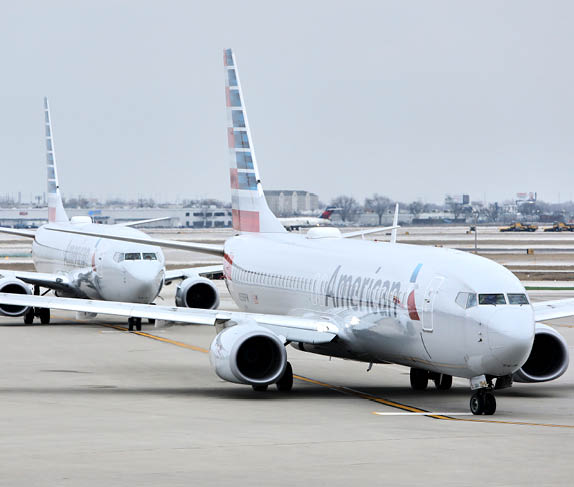Fitch Ratings has downgraded Western Global Airlines’ (WGA) Long-Term Issuer Default Rating (IDR) to 'CCC-' from 'B-'. Fitch has also removed the IDR from Rating Watch Negative. Fitch has downgraded WGA's senior unsecured notes to 'CC'/'RR5' from 'B'/'RR3'.
The rating agency stated that the downgrade was driven by further increases in liquidity and refinance risks given low aircraft activity with large parts of WGA's fleet either stored or parked and limited flights to and from Asia. The downgrade also reflects the continued deterioration of capital markets access with WGA's unsecured bonds currently trading at distressed levels, said Fitch.
WGA's liquidity is constrained due to a fully drawn revolver and weak free cash flow profile. The company has approximately $4 million of quarterly payments in interest expenses and principal amortization related to its secured debt and larger $21 million semi-annual coupons on the unsecured bonds (next payment due Aug. 23). Fitch believes Q1 cash levels will be very low, while FCF for the remainder of the year will be challenged by ongoing weakness in the air cargo environment.
WGA's operations remained limited as of April 2023 despite Asia's post-COVID and Chinese New Year reopening. Fitch believes the dedicated air cargo market will remain pressured as demand softens from slow economic growth and elevated inflation while the supply of belly-hold capacity in passenger planes gradually returns. WGA has experienced challenges in its ability to attract and retain pilots.
Fitch believes that WGA's capital market access and contingent liquidity options have materially deteriorated since our last review. The company has roughly $40 million of secured debt capacity (net of outstanding revolver and term loans) under its bond indenture. The issuance is dependent on WGA having a fixed charge coverage ratio below 2x. The potential issuance of additional secured debt could alleviate near-term liquidity concerns but would likely pressure the unsecured bond rating. WGA could also sell non-core assets to further support liquidity, though the timing and ultimate proceeds from such sales are uncertain.
Fitch believes WGA's competitive position has structurally deteriorated. A large number of inactive aircraft and disadvantaged pilot position have reduced Fitch's post-emergence EBITDA expectations. Fitch assumes the company would significantly shrink its fleet size to improve efficiency in the event of bankruptcy, given the advanced age of the fleet. 15 out of WGA's 21 aircraft are above 25 years old. Fitch estimates the company will receive a going concern EBITDA of $60 million, materially lower than previous estimates. The multiple is unchanged at 4x. The updated recovery analysis resulted in a lower recovery rating of 'RR5' for the unsecured debt.
Relative to a larger air cargo airline Rand Parent (Atlas Air; BB/Stable), WGA faces higher liquidity risks with its revolver fully drawn and greater operational and pilot retention challenges. WGA also has weaker credit metrics than Atlas.
WGA has a smaller fleet than Atlas, which increases its operating risks associated with aircraft downtime. WGA's contracts with customers are shorter, which fits with its strategy to cater to high margin last minute demand; however, the shorter contract durations increase WGA's exposure to freight rates.
Relative to passenger airlines such as American Airlines, Hawaiian Holdings, and WestJet (all rated B-), WGA faces liquidity challenges while the passenger airlines currently hold ample liquidity. WGA's EBITDAR fixed-charge coverage and EBITDAR leverage are slightly stronger than the 'B-' rated passenger airline peers. WGA is exposed to freight rates and pilot recruitment while the company benefits from fuel pass through built into its contract structure, compared with the passenger airlines that are typically exposed to fuel price fluctuation.

